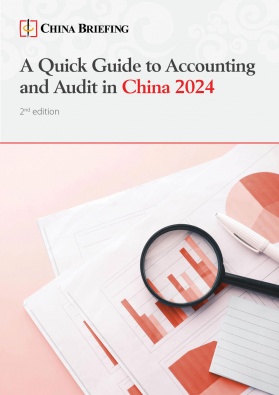Developing the Silver Economy – New Proposals to Cultivate China’s Elder Care Industry
China’s growing elderly population presents both challenges and opportunities for the economy. In a new set of opinions, the State Council proposes several measures to improve social support systems and infrastructure for the elderly population and cultivate various industry segments to leverage new market opportunities. We discuss how the proposals seek to develop the silver economy in China, from developing niche markets to providing government support for elderly care projects.
The General Office of the State Council has released a new set of Opinions on Developing a Silver Economy to Improve the Well-being of the Elderly (the “opinions”).
The 26-point document proposes a variety of measures to improve elder care services and leverage new opportunities presented by China’s aging population.
Addressing the aging population has become a top priority for the government. In 2022, China’s population declined for the first time in six decades, with 850,000 fewer people than the previous year. This decline accelerated in 2023 when the population fell by a further 2.08 million to 1.40967 billion people. According to demographic modeling by the UN from 2022, China’s population may drop to 1.313 billion by 2050 and fall below 800 million by 2100.
China’s population decline poses a host of challenges to the country’s future development, not least because existing support structures for the elderly are inadequate even for the current old-age dependency ratio. An older population will also place greater pressure on the country’s pension, medical, and elderly care systems, and lead to labor shortages in key industries such as manufacturing.
At the same time, the aging population presents a huge opportunity for the so-called “silver economy”. In 2023, people over the age of 60 accounted for 21.1 percent of the total population, while over-65s accounted for 15.4 percent. These figures crystallize the fact that China’s elderly population is becoming an increasingly important and influential consumer base which companies must take seriously to ensure their longevity in the country.
Developing social infrastructure
The opinions provide numerous proposals for improving the country’s elderly support infrastructure, which will help to guarantee the basic needs of the elderly population and improve their overall quality of life.
These include improving mechanisms for ensuring basic services and necessities, such as meals, home-based services, and community services, improving the provision of healthcare for the elderly, and providing more options for education and entertainment, among many other initiatives.
Specific initiatives include:
- Improving meal assistance and delivery services: The opinions propose for various types of organizations, including takeout platforms and logistics companies, to participate in meal assistance and meal delivery. Qualified areas may also receive operating subsidies or incentive subsidies to provide meal assistance service agencies, and localities will receive support to provide subsidies or issue vouchers for elderly people who use meal assistance services.
- Expanding home-based elderly care services: Encourage elderly care institutions, housekeeping companies, and property service companies to provide door-to-door home care services; encourage retail companies and social work agencies to assist the elderly with tasks, such as purchasing daily necessities, housekeeping, hospital registration, and medicine collection.
- Developing community services: Focusing on the “15-minute community” concept, build and renovate a number of community consumer service centers and design the layout of physical stores of facilities to be suitable for the elderly. Encourage shopping malls, supermarkets, and other retail stores to open special areas or convenient windows for the elderly.
- Optimizing health services for the elderly: Improve geriatric medicine departments in general hospitals and traditional Chinese medicine hospitals, and improve the prevention and treatment of geriatric diseases. Build more rehabilitation hospitals, nursing homes, and hospice care institutions, and encourage medical institutions to extend rehabilitation services to communities and families through day rehabilitation, home beds, home visits, and so on.
- Improving elderly care services: Guide local governments to implement differentiated subsidies for ordinary beds and nursing beds in nursing homes, increase the construction and renovation of elderly care institutions, improve the care and service capabilities of disabled elderly people, and appropriately add special care areas for the elderly with cognitive disabilities.
- Enriching cultural and sports services for the elderly: Build a national university for the elderly and promote open education, and based on this university, build a national public service platform for elderly education and establish a resource database and teacher database for elderly education. Improve accessibility of entertainment and media outlets such as the provision of large-print books, and promote the creation of content for the elderly.
- Improving rural elderly care services: Leverage support service facilities (nursing homes) for the extremely poor in rural areas, and use entrusted operations and other methods to provide elderly care services.
Expanding product supply and unleashing industry potential
In addition to the social side of elderly services, the opinions also highlight ways to capitalize on the elderly population as a consumer base and develop the overall silver economy, while striving to improve products and services aimed at the elderly.
In order to develop the overall silver economy, the opinions propose a variety of pilot and development initiatives. These include promoting the development of industry clusters by planning 10 so-called “silver economy industrial parks” in development areas, such as the Jing-Jin-Ji Economic Circle, the Yangtze River Delta, the Greater Bay Area, and the Chengdu-Chongqing Twin City Circle. They also call for facilitating cross-regional and international cooperation through free trade zones (FTZs) and demonstration zones.
Meanwhile, the opinions also highlight several sectors within the silver economy, providing a useful snapshot of sectors that are considered to have high potential.
The sectors include:
- Research and design of elderly-friendly clothing fabrics, styles, and assistive devices, development of functional elderly clothing, footwear, and headwear, R&D of health foods and special medical formula foods suitable for the chewing, swallowing, and nutritional needs of the elderly.
- Fostering smart healthcare and elderly care industries, integrating next-generation IT, mobile terminals, wearable devices, and service robots in the home, community, and institutional elderly care scenarios and developing intelligent health management and elderly care supervision products.
- Promoting the rehabilitation and assistive devices industry through means, such as upgrading traditional devices such as hearing aids, orthopedic devices, canes, and prosthetics. Other potential market segments include smart wheelchairs, transfer machines, and rehabilitation nursing beds, as well as equipment for cognitive training, incontinence rehabilitation training, medication and care reminders, and sleep disorder interventions.
- Developing the anti-aging industry through efforts such as deepening research on skin aging mechanisms, human aging models, and the health of human hair.
- Developing pension and insurance products by supporting financial institutions in legally and compliantly developing pension services, pension planning, and fund management. Insurance products also include commercial medical insurance and long-term care insurance.
- Expanding tourism services for the elderly by improving services, such as elderly-friendly hotels, homestays, and family-friendly facilities, encouraging the development of family-friendly travel products, and developing elderly tourism insurance and encouraging the expansion of insurance coverage.
Government support for the silver economy
The final part of the opinions focuses on means for government agencies to guide and foster the development of the silver economy. This section gives the clearest indication of tangible government support for the industry’s development, calling for the allocation of government funds for various projects, among other support measures.
For instance, the opinions propose formulating land supply plans in order to meet the land requirements for elderly service facilities and companies operating in silver economy industries. Specifically, the opinions propose planning the establishment of community elderly service facilities in newly built residential areas based on a per capita land area of no less than 0.1 square meters. Idle commercial, office, industrial, and warehousing spaces will also receive support to be converted into safe elderly service facilities.
The opinions also call for strengthening financial and fiscal support for the silver economy.
Notable among the funding proposals is the call for funding eligible silver economy-related projects through local government special purpose bonds (SPBs). SPBs are one of the main tools for the central government to transfer funds to local governments to invest (mainly) in public infrastructure projects. This means that local governments will be encouraged to spend SPBs on funding elder care-related projects, which will help to upgrade local elder care services and facilities while providing more options for project funding for the local governments.
Financial institutions are also encouraged to increase support for the construction of elderly service facilities and developing silver economy industry projects.
Finally, the opinions address the long-standing issue of fraud committed against elderly people, calling for extensive anti-fraud educational activities for the elderly and a crackdown on various types of fraud schemes, in particular pension-related scams.
Tapping into the silver economy in China
The opinions are not intended to announce specific policies or incentives to develop the silver economy. Rather, they seek to clarify and organize the government’s priorities for the industry’s development and inform local governments to formulate and implement development plans and policies.
For companies, they provide an insightful summary of the types of products and services that will be the focus of government efforts and funding, and which the government believes have significant potential. In the future, local governments may also create specific incentives for companies to enter the space.
Companies operating in or planning to enter China’s elder care industry can, along with conducting their own market research, align business models and offerings with the market segments highlighted in the opinions. The aging population in China presents both challenges and opportunities for businesses, making it imperative for companies to adapt and thrive in this evolving landscape.
About Us
China Briefing is written and produced by Dezan Shira & Associates. The practice assists foreign investors into China and has done so since 1992 through offices in Beijing, Tianjin, Dalian, Qingdao, Shanghai, Hangzhou, Ningbo, Suzhou, Guangzhou, Dongguan, Zhongshan, Shenzhen, and Hong Kong. Please contact the firm for assistance in China at china@dezshira.com.
Dezan Shira & Associates has offices in Vietnam, Indonesia, Singapore, United States, Germany, Italy, India, and Dubai (UAE). We also have partner firms assisting foreign investors in The Philippines, Malaysia, Thailand, and Bangladesh.
- Previous Article Spostamento della produzione nell’entroterra cinese: un’alternativa al reshoring
- Next Article China-Singapore 30-Day Mutual Visa Exemption Starts Feb.9









